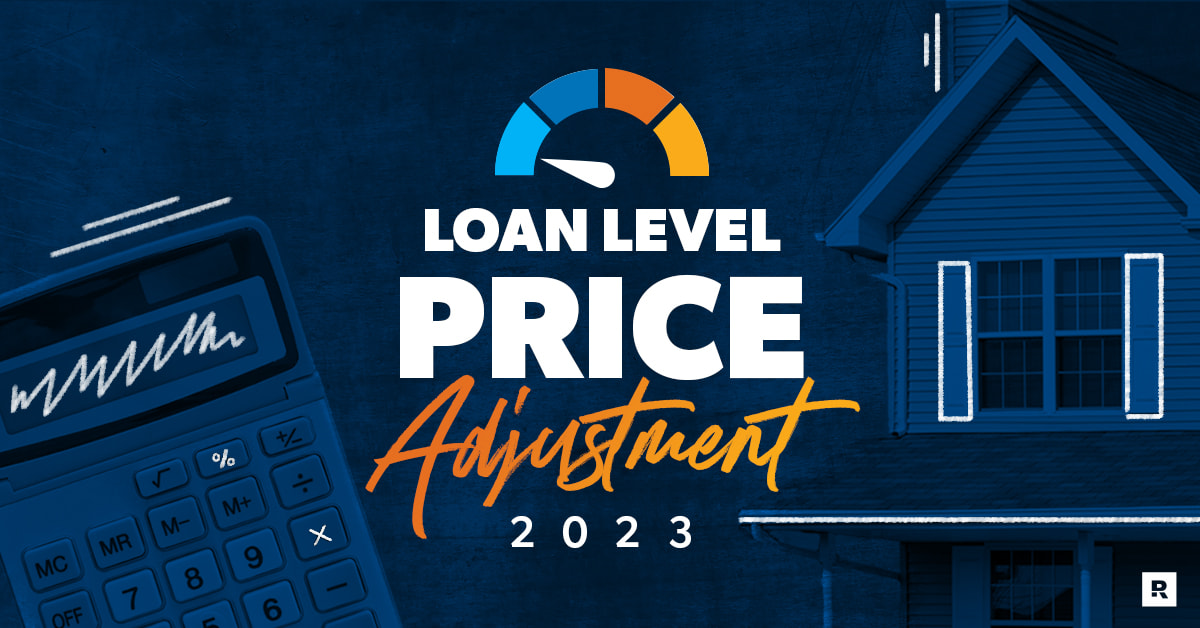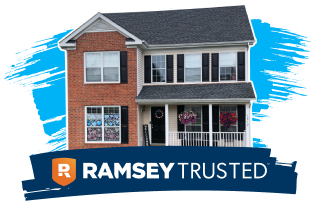How Do Mortgage Fee Structure Changes (LLPAs) Affect My Loan?
7 Min Read | Dec 5, 2024

The U.S. Federal Housing Finance Agency (FHFA) is sounding like a used-car salesman these days. Bad credit? No problem. Low down payment? No problem. If you’ve got a paycheck and a pulse, we’re gonna help you get a house!
On May 1, the FHFA changed its mortgage fee structure for Freddie Mac and Fannie Mae (government-funded mortgage lenders) to make it easier for borrowers with low credit scores and low down payments to get a loan. And how did it decide to cover the cost of helping riskier borrowers get loans? It raised fees on people with good credit and larger down payments.
Yep, the FHFA’s mortgage rate pricing penalizes home buyers who have worked hard, handled their money like responsible adults, and saved for a down payment.
In fact, a home buyer with a 740 credit score and a 15–20% down payment will have an interest rate about a quarter of a percent higher than they would have before the fee change. That translates into a monthly mortgage payment that’s about $40 higher under the new structure. (Based on a $400,000, 30-year loan.)1
The new mortgage fees basically work out to a $10 difference (either higher or lower depending on your credit score and down payment) for every $100,000 of home loan value. And the truth is, an extra $30 or $40 a month shouldn’t make a huge impact on your home-buying decision. If it does, that’s a clue you might not be in the best financial position to buy a house.
But still. Even though we’re not fans of I-love-debt—whoops—credit scores, we see how it would sting to pay fees for having good credit. The FHFA calls these mortgage fees loan-level price adjustments, so let’s take a look at how they work.
Get the right mortgage from a trusted lender.
Whether you’re buying or refinancing, you can trust Churchill Mortgage to help you choose the best mortgage with a locked-in rate.
What Is Loan-Level Price Adjustment (LLPA)?
Loan-level price adjustments (LLPAs) are mortgage fees you pay based on your credit score and the size of your down payment (also called loan-to-value ratio). Additional LLPAs also apply if you buy something other than a single-family house—like a condo, investment property, second home or a manufactured home.2
Your fee is higher if you have a low credit score (aka not-so-great credit), and your fee is lower if you have a higher credit score (known in the industry as good credit). That makes sense, right? Because someone with a fair or low credit score has shown they aren’t great at paying their bills and are more of a risk of defaulting on their home loan. So charging higher fees protects the lender.
But when the FHFA revised its LLPAs this year, it actually lowered the fees for borrowers with fair credit and raised fees for those with good credit. They just decided to reward people who don’t pay their bills by making it easier for them to borrow big chunks of money to buy homes.
How Do LLPAs Affect Mortgage Interest Rates?
The FHFA sets LLPAs for Freddie Mac and Fannie Mae, the giant government lenders that purchase home loans from banks, both big and small. Banks follow these guidelines so they can sell loans to Freddie and Fannie. And rather than charging LLPAs to home buyers directly, they tack them on to the mortgage interest rates they charge home buyers.
Dave Ramsey recommends one mortgage company. This one!
Now, to be clear, if two home buyers have the same size down payment but different credit scores, the one with the lower credit score will pay a higher LLPA. But the FHFA’s new rules narrow the gap between what people with high and low credit scores pay.
A buyer with good credit and a 15–20% down payment should expect their interest rate to be about a quarter of a percentage point higher under the revised LLPA guidelines.3
In addition to changing its credit score guidelines, the FHFA also changed its loan-to-value rules. Borrowers with smaller down payments will now have lower fees across the board. Yep, you read that right! If you put down less than 20%, your fees gradually get smaller the less you put down.
For instance, the fee for a borrower with good credit (720) and a 15% down payment is 0.5% higher than the fee for a borrower with good credit and only a 5% down payment.4
Why Did LLPAs Change?
If you’re scratching your head about how these mortgage fees are structured, you’re not alone.
According to a statement from National Association of Realtors President Kenny Parcell, “Fees are raised on some borrowers with good credit scores and moderate down payments, hitting middle-wealth home buyers . . . . In the wake of a three-percentage point increase in mortgage rates, now is not the time to raise fees on home buyers.”5
House Republicans are working on a bill to repeal the mortgage fee changes.6 And a group of 18 Republican Senators also sent a letter to the FHFA to express their concern that the new LLPA guidelines could hurt the housing sector.
“This shortsighted and counterproductive policy demonstrates a profound misunderstanding of the necessity of accurately tailoring housing finance products to credit risk and establishes a perverse incentive that punishes hardworking Americans for their fiscal prudence,” the letter reads.7
In layman’s terms: The policy stinks.
The Biden administration has long sought to make housing more affordable for low- and middle-income Americans.8 The FHFA said the goal of lowering fees for borrowers with low credit scores and low down payments is to make homes more affordable for people who have been “historically underserved by the housing finance market” and who are “limited by wealth or income.”9,10
Yes, lowering fees based on down-payment size helps low-income borrowers who might have trouble saving for a down payment. In the long run though, the lower fees really don’t make a big difference for borrowers. But they do give politicians the chance to say, “Hey, we’re helping people get homes.”
Now, the credit score guideline is where things get squirrely because a credit score has nothing to do with income. Plenty of people with big incomes have low credit scores because they’re buried in debt and spend like they’re in Congress. On the other hand, many people with low or middle incomes have high credit scores.
And if you follow the Ramsey Baby Steps, you might have no credit score at all!
Want More Expert Real Estate Advice?
Sign up for our newsletter! It’s packed with practical tips to help you tackle the housing market and buy or sell your home with confidence—delivered straight to your inbox twice a month!
Can You Avoid LLPA Mortgage Fees?
Freddie Mac and Fannie Mae started charging LLPAs about 15 years ago following the housing market crisis.11 LLPAs were created to keep lenders from making the risky home loans that caused the Great Recession.
So, if you’ve bought a home with a 30-year mortgage in the last 15 years, you most likely paid LLPAs.
However, LLPAs only apply to mortgages with terms longer than 15 years.12 That’s right, if you get a 15-year fixed-rate mortgage, you won’t have to worry about LLPAs at all. You’ll also get a better interest rate and save a ton of money on interest over the life of the loan. This is why we only recommend getting a 15-year mortgage.
If you do get a 30-year mortgage, you can lower your LLPAs by having a bigger down payment. For most borrowers, LLPAs gradually get lower as your down payment gets higher than 20%. LLPA is zero for people with a good credit score and a 40% down payment.
Like we said earlier, if you put down less than 20%, your fees get smaller the less you put down. So you might think, should I make a low down payment to avoid mortgage fees? Nope! Because when your down payment is less than 20%, you’ll have to pay private mortgage insurance (PMI), which is around 1% of your home’s purchase price per year.
LLPAs also don’t apply to FHA, VA and USDA loans. But these types of loans have high mortgage insurance premiums and could leave you upside down on your mortgage. That’s why we don’t recommend them.
Keep on Top of Mortgage Fees With a RamseyTrusted Lender
Navigating the world of buying a house is complicated, especially when it comes to mortgage fees. If you’re ready to buy a home now, connect with the RamseyTrusted home loan specialists at Churchill Mortgage. They’ll help you get a mortgage you can afford!
Did you find this article helpful? Share it!

We Hear You!
We’re considering adding the ability to save articles to your Ramsey account.




